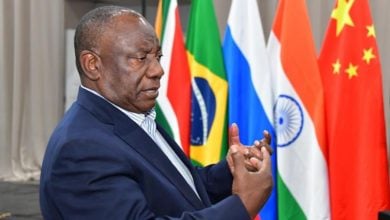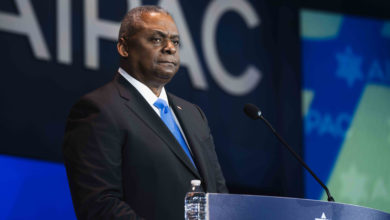The separatist, anti-China character of the protests in Hong Kong have become increasingly clear as the movement continues. On July 28, a 2nd unlawful march once again led to violent clashes between protesters and police in multiple areas throughout the city. Earlier that day a Hong Kong independence flag was prominently flown. Although the extradition bill that sparked the protests has long been “declared dead,” marches, demonstrations, and street clashes polarize the city between “pro-democracy” forces and those who recognize that Hong Kong’s past, present, and future is inextricably connected to China.
The unrest is a product of deeper contradictions in Hong Kong society that have their origins in 150 years of British colonial rule. This period created deeply entrenched political trends that are hostile to the rest of China and oriented towards the West. These forces are primarily situated among the upper and middle classes, but have been able to draw large crowds beyond their natural base by taking advantage of other contradictions in society. In the past ten years, real estate prices have skyrocketed by 170 percent while worker wages have not kept apace. Seeing no economic future, some protesters blame their woes on Beijing rather than the Hong Kong real estate tycoons who are profiting off increased rent, land speculation, and tax-free profits under legal conditions stipulated by the Hong Kong handover agreement implemented when Chinese sovereignty over the city was formerly restored in 1997.
Lingering chauvinism from British rule
The anti-China sentiment driving anti-extradition protesters is a type of chauvinism that developed because of the different historical experience of Hong Kong compared with mainland China. British colonial rule lasted from 1841 to 1997 and interrupted over 2000 years of Hong Kong being part of China under successive dynasties. Hong Kong was a British crown colony that was selected to serve as a center of finance capital in East Asia, and the layer of society that benefited from this status developed a sharp hostility to mainland China.
The rise of China’s economy in recent decades has increasingly eclipsed the once dominant role of Hong Kong, which made up 27 percent of China’s GDP in 1993 compared with less than 3 percent in 2017. This change of relative importance leaves the wealthier sections of the population that have been most supportive of the protest movement nostalgic for the times of British rule long past rather than looking forward to the future prosperity they can create as a non-colonized part of China.
Still, many people in Hong Kong support their relationship to China under the “one country, two systems” arrangement that allows for extended local autonomy over decisions regarding economic and governmental policy while recognizing the fundamental unity of China. The current political order brings stability that many see as being the key to Hong Kong’s future. Labeled the “pro-Beijing” camp, over 300,000 attended a rally on July 20 to respect law and order, which they view as the foundation of Hong Kong’s prosperity.
This segment of society is often called the “silent majority” by pro-Beijing commentators. While their existence is almost completely concealed by the corporate media in the United States, there are many people who support policies like the now-shelved extradition bill. The impetus for the bill, which would have allowed the chief executive to extradite accused criminals to where the crime was committed on a case-by-case basis, came from a high-profile case when a man murdered a pregnant woman in Taiwan and fled to Hong Kong.
Despite calls from the Hong Kong Special Administrative Region (SAR) government to settle the extradition bill through existing channels, anti-extradition protesters continue to escalate their actions. Protesters’ deep distrust of the SAR government, seen as a puppet of Beijing, compel them to increasingly target the Chinese government itself as they explicitly call for Chief Executive Carrie Lam to step down.
Increasing unrest threatens economic stability, political unity
In response to an attack in a Hong Kong suburb on mostly anti-extradition protesters by alleged gang members, protesters vowed to march on the suburb, a few seeking revenge. This first illegal march on July 27, which authorities banned citing safety reasons, saw local villagers guarding their ancestral shrine as fully armed riot police kept the two groups separate. Street clashes ensued where protesters hurled bricks, corrosive liquid, and fire extinguishers at police in yet another scene of chaos once unfamiliar to Hong Kong.
Videos document the rising occurrence of protester violence. Dozens of protesters surrounded and attack a single police officer at a mall. In another case, a young protester punches an older man to the ground and kicks him in the head. There are many scenes of Mandarin-speaking or pro-Beijing people getting harassed, assaulted, or told to “go back home” by crowds of protesters, though the Western media portrays them as largely peaceful or victims.
These rising tensions come after a first flash of violence on June 12th that left 22 people hospitalized, 10 police injured, and 37 arrested. Weeks later, protesters broke into the main legislative building causing millions of dollars in property damage. On July 21st protesters defaced the Chinese national emblem with black paint at another legislative office. A protester even painted an anti-Chinese racial slur to insult the Hong Kong government, as if to emphasize the difference between “Hong Kongers” and Chinese people.
Who benefits from this increasing polarization? The U.S. government, with its trade war, “pivot to Asia” military strategy and myriad divide and conquer campaigns aiming to carve up China in its pursuit of global dominance is certainly one beneficiary.
The antagonistic, chauvinist character of the protests fosters disunity and ill-will between people from the Mainland and Hong Kong. The protests also hurt the Hong Kong economy. Retail sales are down double digits, flights to Hong Kong are down nearly 10 percent, and an estimated 350,000 fewer tourists will visit. The United States looks on gleefully as Hong Kong and China jointly suffer because they naturally have a shared fate.





